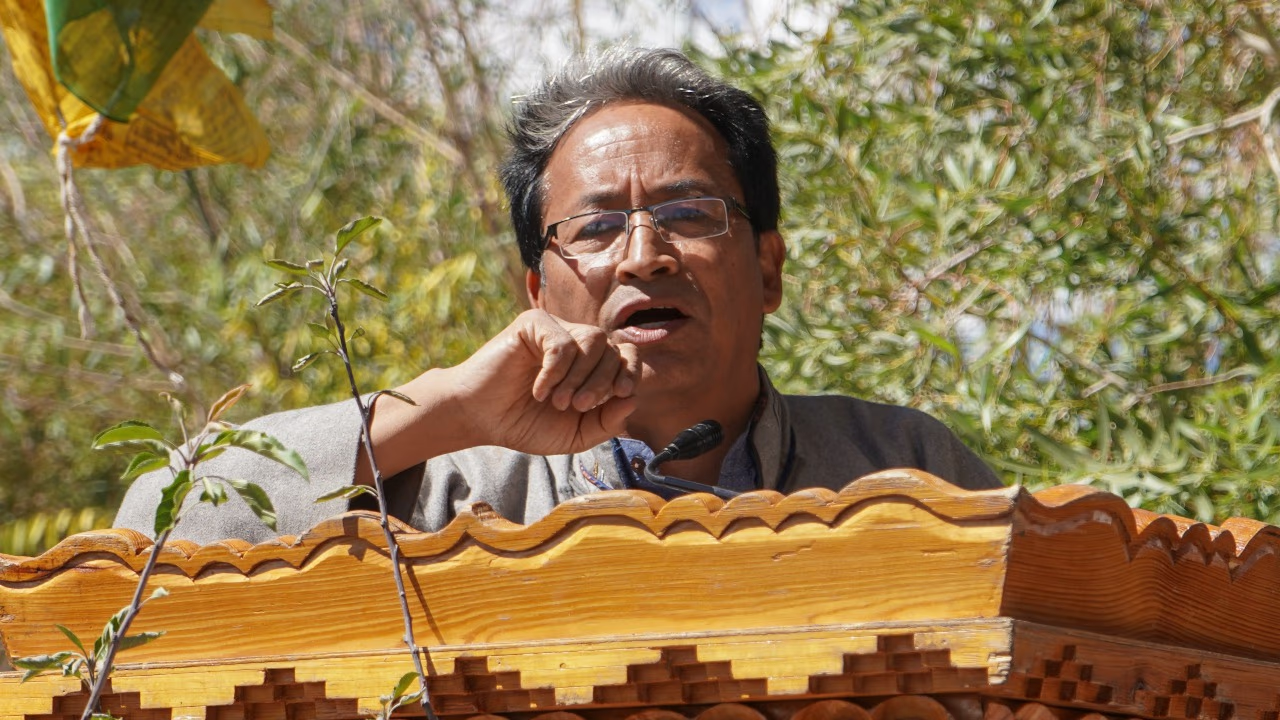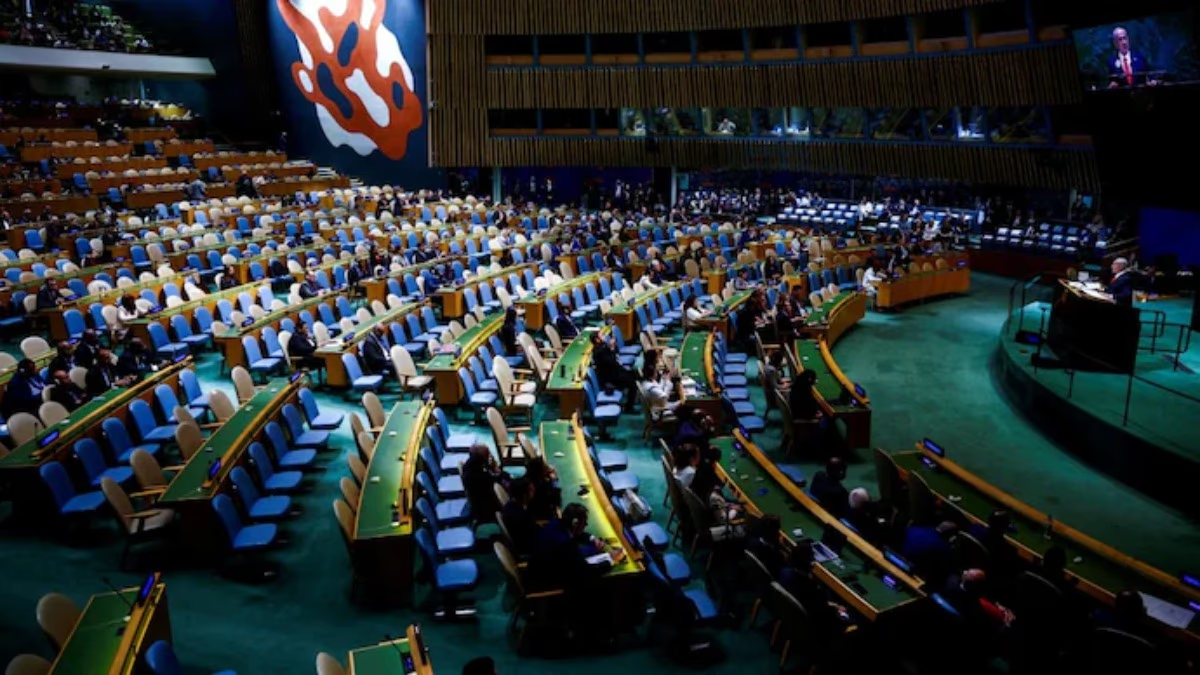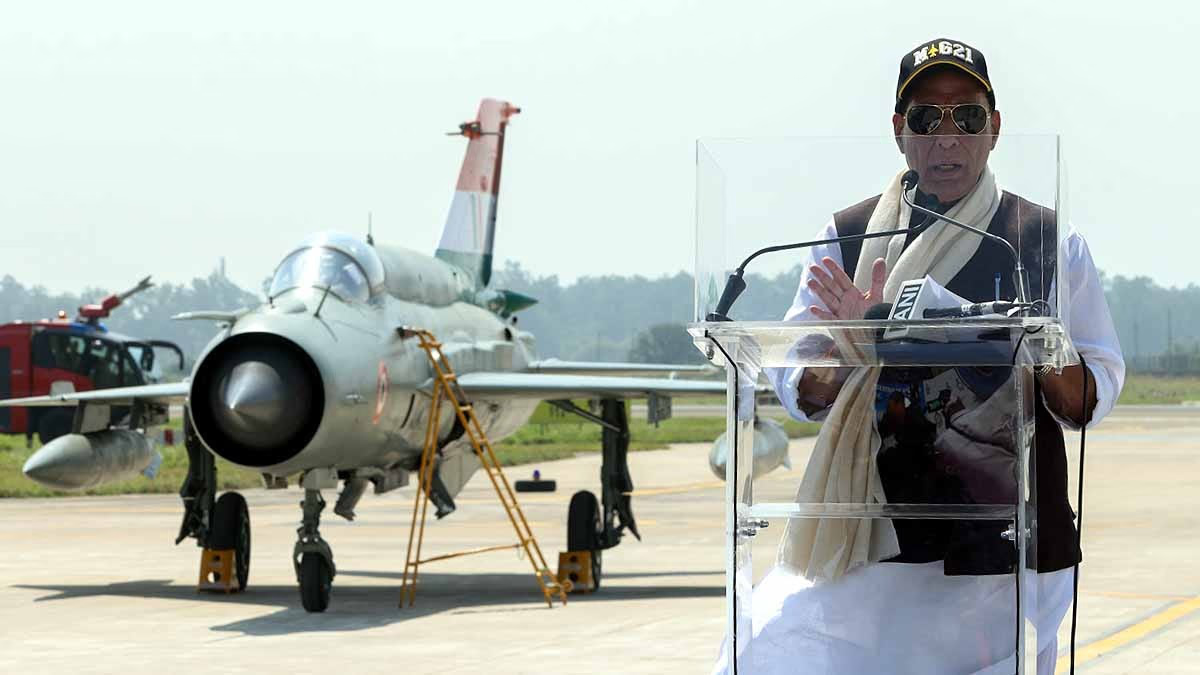On September 26, Leh police arrested environmental activist Sonam Wangchuk following violent clashes in Leh on September 24, which resulted in four deaths and over 80 injuries. The central government held Wangchuk responsible, alleging that his provocative statements turned a peaceful movement violent. Once renowned as an innovative engineer inspired by '3 Idiots' character Rancho (Phunsukh Wangdu), Wangchuk now faces accusations of 'political provocation.' His hunger strikes and speeches are said to have ignited turmoil in Ladakh, casting a shadow over his reputation. The critical question arises: Is he truly guilty? While it is possible that Wangchuk isn't directly responsible for the violence, he must respond to the allegations against him.
Sonam Wangchuk, aged 59, is an engineer and environmental activist from Ladakh. He founded SECMOL (Students' Educational and Cultural Movement of Ladakh) in 1988, an organization focused on rural educational reform, powered by solar energy, and free from fossil fuels. In recognition of his social contributions, he was awarded the Ramon Magsaysay Award in 2018, equated to Asia's Nobel Prize.
The movement began peacefully. Wangchuk and his supporters undertook a peaceful march to Delhi. However, on September 24, violence erupted under the leadership of Gen Z youths. BJP offices were set on fire, CRPF vehicles were torched, and police firing resulted in four fatalities. A curfew was imposed in Leh, leading to more than 50 arrests. Although Wangchuk condemned the violence, the central government believes his provocative statements incited the mob. On September 25, MHA revoked SECMOL's FCRA license, and Wangchuk was arrested under the NSA on September 26. Since then, the situation in Ladakh has sparked national debate, with hashtags like #ReleaseSonamWangchuk and #SonamWangchukTraitor trending on social media.
Initially, Sonam Wangchuk advocated only for the Sixth Schedule, but now he is demanding statehood. Looking at the map of Jammu & Kashmir, Ladakh occupies more than three-quarters of the area, with a population of around 300,000. Granting statehood in a scenario where this Union Territory shares borders with hostile neighbors like China and Pakistan could potentially risk national security for several years. Notably, the movement is confined to Leh, a relatively small part of this vast Union Territory.
It's noteworthy that Wangchuk has at times issued threatening statements, arousing suspicion. Videos have circulated showing him discussing rebellion within the army and even suggesting the possibility of Chinese forces entering. Although these remarks were likely made to communicate with the Indian government, they are sensitive concerning national security. Moreover, the government has already stated that the Sixth Schedule is off the table, so overemphasis on this could be ill-timed.
Wangchuk voices the need for employment for Ladakhi youth. However, without corporate reach, can employment for all be ensured? Is it feasible to provide government jobs for everyone? Ladakh, situated at an average altitude of 3,000 meters, faces climate changes leading to 30% glacier melts and drying rivers. During a 21-day fast in March 2024, Wangchuk pointed out that the environmental crisis is at the root of unemployment. Crops are failing, and tourism is affected. Evidently, if individuals like Wangchuk grow stronger, external companies might find it challenging to operate here.
The demand for the Sixth Schedule is aimed at protecting tribal lands to prevent ecological damage from mining/tourism. One can decipher the substantial threat Wangchuk is inviting, given Ladakh's rich mineral reserves. Ladakh is rich in resources like ultra-pure silica for semiconductors and various critical mineral deposits, including uranium and thorium reserves.
The central government claims Wangchuk's speeches turned peaceful protests in Ladakh violent. He referenced the 'Arab Spring' and the 'Nepalese Gen Z rebellion,' guiding the youth toward 'revolution.' During LAB's shutdown on September 24, the youth took to the streets after two strikers were hospitalized. BJP offices, Hill Council headquarters, and vehicles were set ablaze. Police responded with batons, tear gas, and gunfire. While Wangchuk condemned the violence and made pleas for peace in Hindi and Ladakhi, the central government accused him of fleeing the scene in an ambulance instead of trying to control the situation. On social media, @ARanganathan72 commented that Wangchuk led Ladakh toward Nepal-like anarchy.
Wangchuk faces significant allegations of foreign influence. On September 25, MHA canceled SECMOL's FCRA license, charging that local funds were deposited into the FCRA account, which was then misused for unauthorized activities. In FY 2020-21, ₹54,600 in local funds was deposited into the FCRA account, rising to ₹3.35 lakh in FY 2021-22.
A Swedish organization, Framtidsjorden, donated ₹4.93 lakh for youth awareness programs. HIAL (Himalayan Institute of Alternatives, Ladakh) received donations ranging from ₹6 crores to ₹15 crores, with ₹6.5 crores transferred to his private firm Sheshyon Innovations. Additionally, Wangchuk has been associated with the Ashoka Fellowship since 2002.
Wangchuk's participation in a February 2025 Pakistan climate conference raises suspicions. Allegations question the caliber of the environmental summit held in Pakistan. The CBI has initiated an investigation, and the MHA reported studies on sovereignty funded by foreign sources. BJP's Amit Malviya commented on social media that Wangchuk and Congress are motivated by foreign agencies, causing unrest in border areas. This raises doubts about whether his movement is truly environmental or linked to China-Pakistan, posing a risk to Ladakh's strategic stability. Wangchuk maintains it's a business transaction, not foreign funding, and taxes have been paid, yet skepticism persists.




